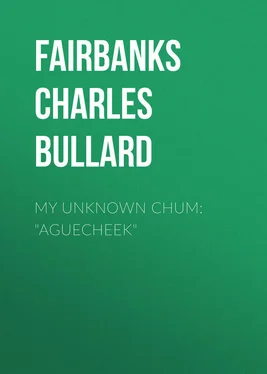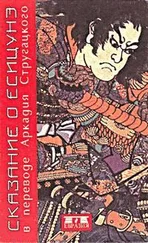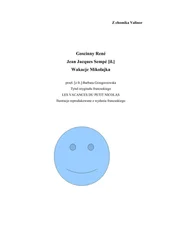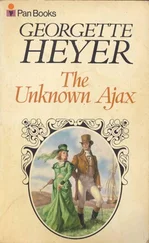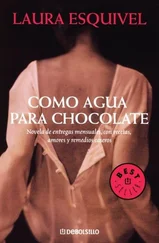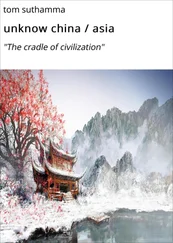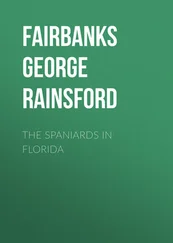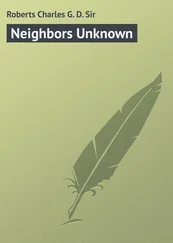Charles Fairbanks - My Unknown Chum - Aguecheek
Здесь есть возможность читать онлайн «Charles Fairbanks - My Unknown Chum - Aguecheek» — ознакомительный отрывок электронной книги совершенно бесплатно, а после прочтения отрывка купить полную версию. В некоторых случаях можно слушать аудио, скачать через торрент в формате fb2 и присутствует краткое содержание. Жанр: foreign_antique, foreign_prose, essays, на английском языке. Описание произведения, (предисловие) а так же отзывы посетителей доступны на портале библиотеки ЛибКат.
- Название:My Unknown Chum: Aguecheek
- Автор:
- Жанр:
- Год:неизвестен
- ISBN:нет данных
- Рейтинг книги:4 / 5. Голосов: 1
-
Избранное:Добавить в избранное
- Отзывы:
-
Ваша оценка:
- 80
- 1
- 2
- 3
- 4
- 5
My Unknown Chum: Aguecheek: краткое содержание, описание и аннотация
Предлагаем к чтению аннотацию, описание, краткое содержание или предисловие (зависит от того, что написал сам автор книги «My Unknown Chum: Aguecheek»). Если вы не нашли необходимую информацию о книге — напишите в комментариях, мы постараемся отыскать её.
My Unknown Chum: Aguecheek — читать онлайн ознакомительный отрывок
Ниже представлен текст книги, разбитый по страницам. Система сохранения места последней прочитанной страницы, позволяет с удобством читать онлайн бесплатно книгу «My Unknown Chum: Aguecheek», без необходимости каждый раз заново искать на чём Вы остановились. Поставьте закладку, и сможете в любой момент перейти на страницу, на которой закончили чтение.
Интервал:
Закладка:
At last we draw near London. A gentleman, whose age I would not attempt to guess, – for he was very carefully made up, and boasted a deportment which would have excited the envy of Mr. Turveydrop, senior, – so far forgot his dignity as to lean forward and inform me that the place we were passing was "'Arrow on the 'Ill," which made me forget for the moment both his appearance and his uncalled-for "exasperation of the haitches." Not long after, I found myself issuing from the magnificent terminus of the North Western Railway, in Euston Square, in a cab marked V. R. 10,276. The cab and omnibus drivers of London are a distinct race of beings. Who can write their natural history? Who is competent to such a task? The researches of a Pritchard, a Pickering, a Smyth, would seem to cover the whole subject of the history of the human species from the anthropophagi and bosjesmen to the drinkers of train oil in the polar regions; but the cabmen are not included. They would require a master mind. The subject would demand the patient investigation of a Humboldt, the eloquence of a Macaulay, and the humour of a Dickens – and even then would fall short, I fear, of giving an adequate idea of them. Your London cab driver has no idea of distance; as, for instance, I ask one the simple question, —
"How far is it to the Angel in Islington?"
"Wot, sir?"
I repeat my interrogatory.
"Oh, the Hangel, sir! Four shillings."
"No, no. I mean what distance."
"Well, say three, then, sir."
"But I mean – what distance? How many miles?"
"O, come, sir, jump in – don't be 'ard on a fellow – I 'aven't 'ad a fare to-day. Call it 'arf a crown, sir."
Leigh Hunt says somewhere that if there were such a thing as metamorphosis, Dr. Johnson would desire to be transformed into an omnibus, that he might go rolling along the streets whose very pavements were the objects of his ardent affection. And he was about right. What better place is there in this world to study human nature than an omnibus? All classes meet there; in the same coach you may see them all – from the poor workwoman to the genteelly dressed lady, who looks as if she disapproved of such conveyances, but must ride nevertheless – from the young sprig, who is constantly anxious lest some profane foot should dim the polish of his boots, to the urbane old gentleman, who regrets his corpulence, and would take less room if he could. And then the top of the omnibus, which usually carries four or more passengers, what a place is that to see the tide of life which flows unceasingly through the streets of London! I know of nothing which can furnish more food for thought than a ride on an omnibus from Brompton to the Bank on a fine day. It is a pageant, in which all the wealth, pomp, power, and prosperity of this world pass before you; and for a moral to the whirling scene, you must go to the nearest churchyard.
London is ever the same. The omnibuses follow each other as rapidly as ever up and down the Strand, the white-gloved, respectable-looking policemen walk about as deliberately, and the tail of the lion over the gate of Northumberland House sticks out as straight as ever. The only great change visible here is in the newspapers. The tone of society is so different from what it was formerly, in all that concerns France, that the editors must experience considerable trouble in accustoming themselves to the new state of things. Once, France and Louis Napoleon furnished Punch with his chief materials for satire and amusement, and if any of the larger and more dignified journals wished to let off a little ill humour, or to say any thing particularly bitter, they only had to dip their pens in Gaul ; but times are changed, and now nothing can be said too strong in favour of "our chivalric allies, the French." The memory of St. Helena seems to have given place to what they call here the entente cordiale , which those who are acquainted with the French language assure me means an agreement by which one party contracts to "play second fiddle" to another, through fear that if he does not he will not be permitted to play at all.
To the man who thoroughly appreciates the Essays of Elia, and Boswell's Life of Johnson, London can never grow tiresome. He can never turn a corner without finding "something new, something to please, and something to instruct." Its very pavements are classical. And there is nothing to abate, nor detract from, such a man's enthusiasm. The traveller who visits the Roman Forum, or the Palace of the Cæsars, experiences a sad check when he finds his progress impeded by unpoetical obstacles. But in London, all is harmonious; he sees on every side, not only that which tells of present life and prosperity, but the perennial glories of England's former days. Would he study history, he goes to the Tower, "rich with the spoils of time"; or to Whitehall, where mad fanaticism consummated its treasonable work with the murder of a sovereign; or to the towering minster, to gaze upon the chair in which the monarchs of a thousand years have sat; or to view the monuments, and read the epitaphs, of that host of
"Bards, heroes, sages, side by side,
Who darkened nations when they died."
Is he a lover of English literature? Here are scenes eloquent of that goodly company of wits and worthies, whose glowing pages have been the delight of his youth and the consolation of his riper years; here are the streets in which they walked, the taverns in which they feasted, the churches where they prayed, the tombs where they repose.
And London wears well. To revisit it when age has sobered down the enthusiasm of youth, is not like seeing a theatre by daylight; but you think almost that you have under-estimated your privileges. How well I remember the night when I first arrived in the metropolis! It was after ten o'clock, and I was much fatigued; but before I booked myself in my hotel, or looked at my room, I rushed out into the Strand, "with breathless speed, like a soul in chase." I pushed along, now turning to look at Temple Bar, now pausing to take breath as I went up Ludgate Hill. I saw St. Paul's and its dome before me, and I was satisfied. No, I was not satisfied; for when I returned up Fleet Street, I looked out dear old Bolt Court, and entered its Johnsonian precincts with an awe and veneration which a devout Mussulman, taking the early train for Mecca, would gladly imitate. And then I posted down Inner Temple Lane, and looked at the house in which Charles Lamb and his companions held their "Wednesday nights"; and, going still farther, I saw the river – I stood on the bank of the Thames, and I was satisfied. I looked, and all the associations of English history and literature which are connected with it filled my mind – but just as I was getting into a fine frenzy about it, a watchman hove in sight, and the old clock chimed out eleven. So I started on, and soon reached my hotel. I was accosted on my way thither by a young and gayly dressed lady, whom I did not remember ever to have seen before, but who expressed her satisfaction at meeting me, in the most cordial terms. I told her that I thought that it must be a mistake, and she responded with a laugh which very much shocked an elderly gentleman who was passing, who looked as if he might have been got up for the part of the uncle of the unhappy G. Barnwell. I have since learned that such mistakes and personal misapprehensions very frequently occur in London in the evening.
Speaking of Temple Bar, it gratifies me to see that this venerable gateway still stands, "unshaken, unseduced, unterrified," by any of the recent attempts to effect its removal. The old battered and splashed doors are perhaps more unsightly than before; but the statues look down with the same benignity upon the crowd of cabs and omnibuses, and the never-ending tide of humanity which flows beneath them, as they did upon the Rake's Progress, so many years ago. The sacrilegious commissioners of streets long to get at it with their crows and picks, but the shade of Dr. Johnson watches over the barrier of his earthly home. It is not an ornamental affair, to be sure, and it would be difficult for Mr. Choate, even, to defend it against the charge of being an obstruction; but its associations with the literature and history of the last two or three centuries ought to entitle its dingy arches to a certain degree of reverence, even in our progressive and irreverent age. The world would be a loser by the demolition of this ancient landmark, and London, if it should lose this, though it might still be the metropolis of the British empire, would cease to be the London of Johnson and Goldsmith, of Addison and Pope, of Swift and Hogarth.
Читать дальшеИнтервал:
Закладка:
Похожие книги на «My Unknown Chum: Aguecheek»
Представляем Вашему вниманию похожие книги на «My Unknown Chum: Aguecheek» списком для выбора. Мы отобрали схожую по названию и смыслу литературу в надежде предоставить читателям больше вариантов отыскать новые, интересные, ещё непрочитанные произведения.
Обсуждение, отзывы о книге «My Unknown Chum: Aguecheek» и просто собственные мнения читателей. Оставьте ваши комментарии, напишите, что Вы думаете о произведении, его смысле или главных героях. Укажите что конкретно понравилось, а что нет, и почему Вы так считаете.
